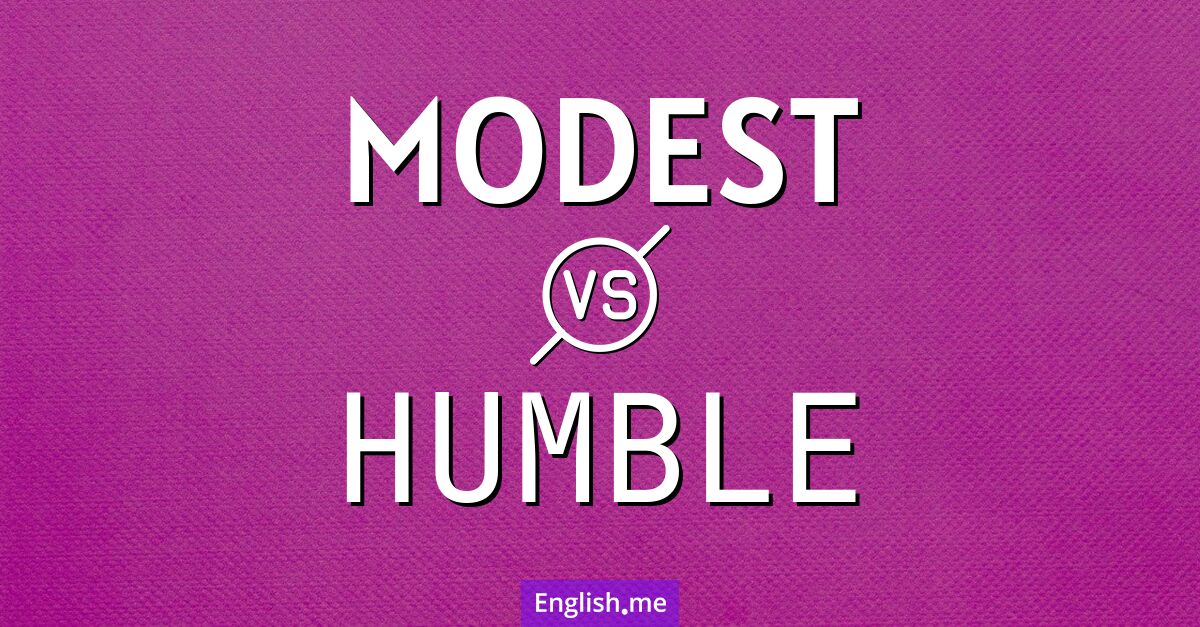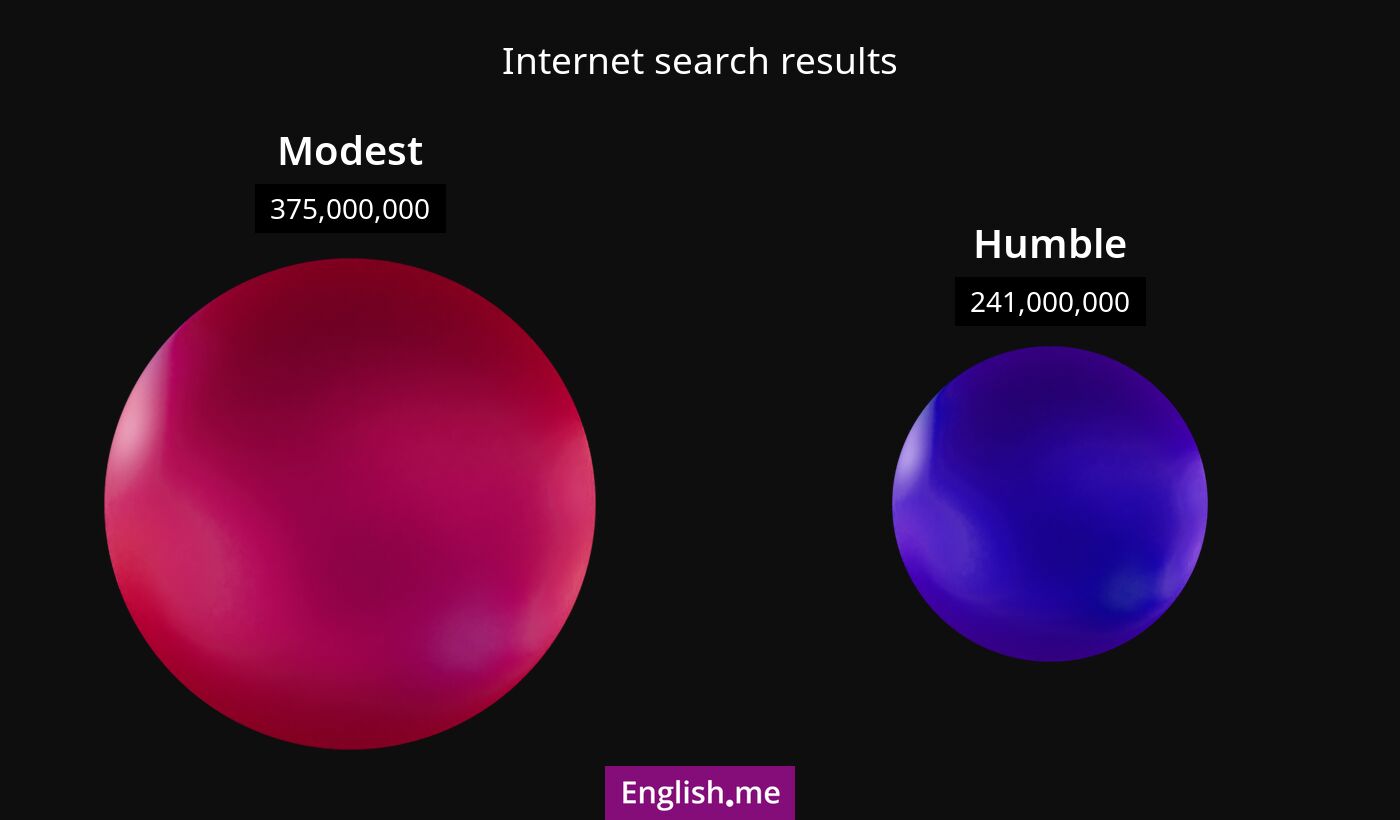"Modest" vs "humble": comparing two virtues
Reviewed and edited by  Lloyd Cooper 02/11/2024, 08:07
Lloyd Cooper 02/11/2024, 08:07
English.me team member

 What is similar?
What is similar?
Both "modest" and "humble" describe qualities related to having a low view of one's importance or being unassuming. They both imply a lack of arrogance and a simple or restrained manner.
 What is different?
What is different?
While "modest" often refers to someone's behavior, appearance, or circumstances, suggesting moderation and propriety, "humble" more specifically refers to one's self-view or attitude, often related to humility or having a modest opinion of oneself in a straightforward manner. "Modest" can also refer to being moderate in achievements or estimations, whereas "humble" can imply a greater sense of self-awareness and meekness.
 Which one is more common?
Which one is more common?

 Examples of usage
Examples of usage
Modest- She wore a modest dress to the gathering.
- His expectations are modest, given the challenges.
- The house was modest, but it was comfortable and cozy.
- Despite his success, he remains humble.
- She gave a humble apology for her mistake.
- He started from humble beginnings but worked his way up.

 English
English español
español française
française italiano
italiano deutsche
deutsche 日本語
日本語 polski
polski česky
česky svenska
svenska Türkçe
Türkçe Nederlands
Nederlands